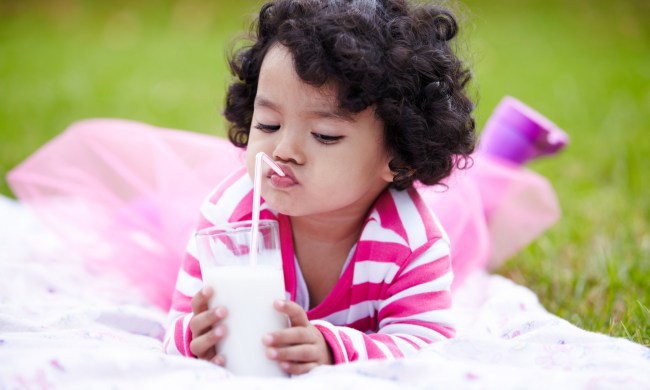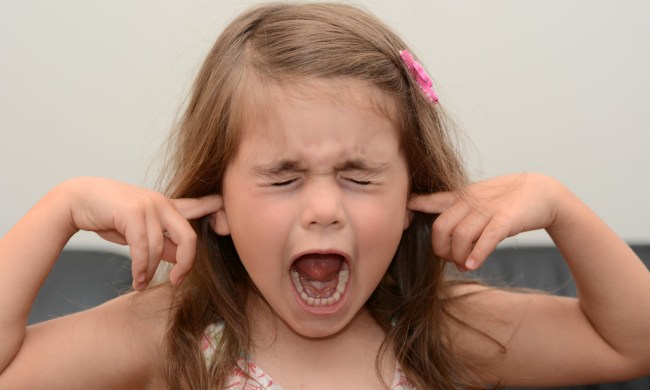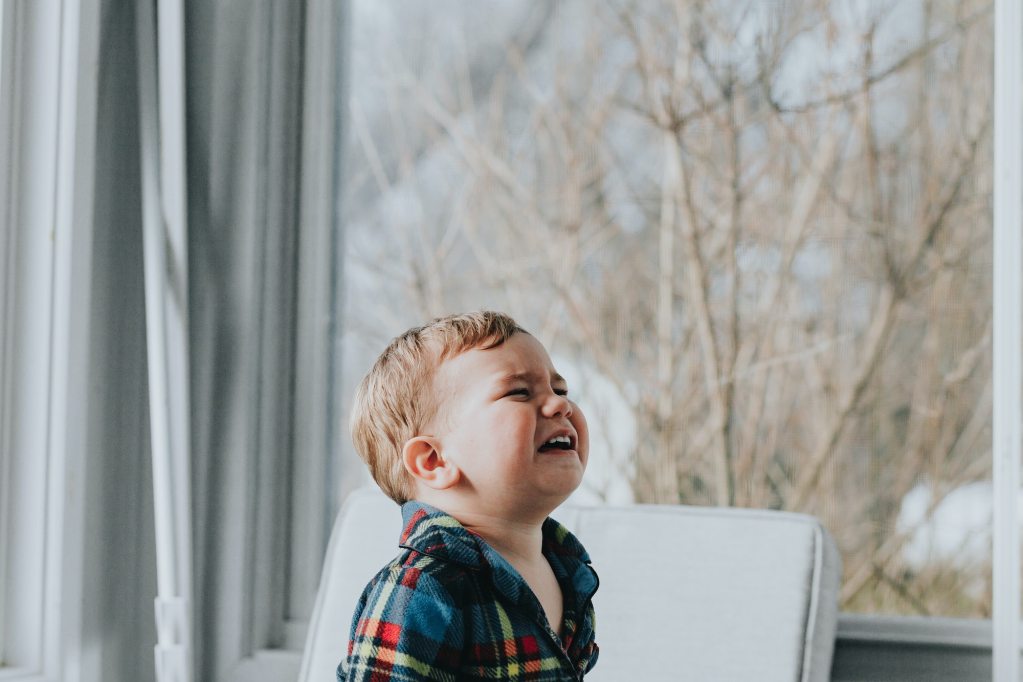
When a toddler hits, it throws parents for a loop. It is especially stressful when a toddler hits others for no reason they see or hits another child at day care. You might find yourself wondering what could be going on with your little one. But as babies grow from infants to toddlers, they develop more emotions and opinions. And though it seems like the toddler is hitting for no reason, the truth is it often becomes a way for them to express those emotions.
While toddlers hitting others could be a scary stage for a child and parent, there are ways to work through it together. We’ll go over why your toddler is hitting other kids, how to get them to stop, and what parents need to remember during this stage in your child’s life.
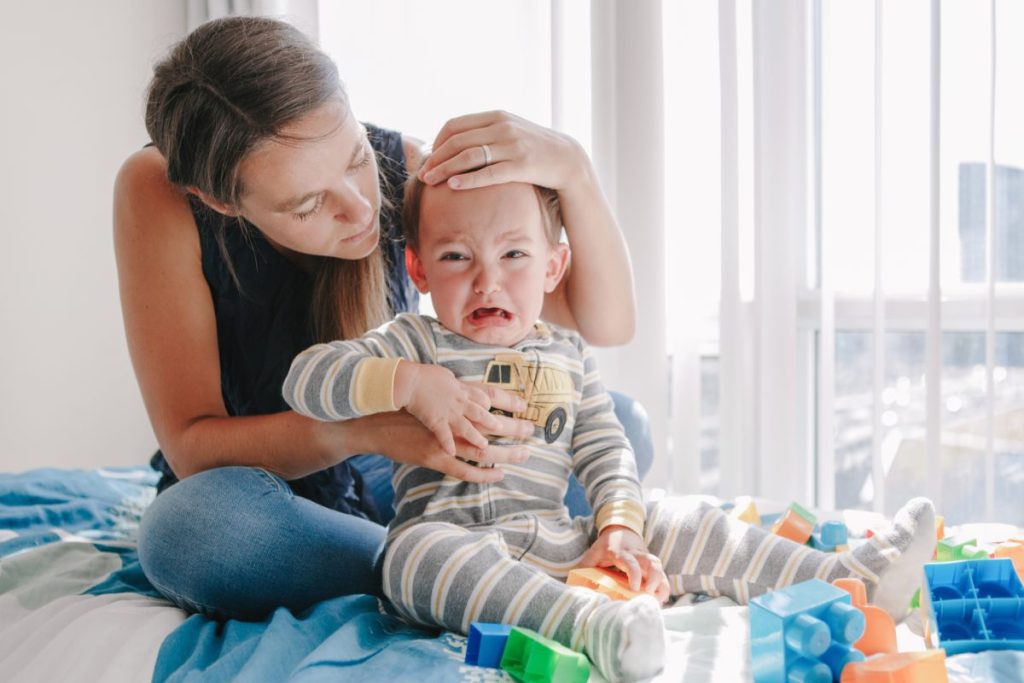
A few reasons why your child will hit
They see others doing it
Hitting is a learned behavior. Perhaps a sibling is hitting your toddler at home, and your toddler is turning around and doing it to other kids at day care (or vice versa). As adults, we know this behavior isn’t nice. We want to convey that to our children so they don’t hit at day care, home, or anywhere.
There is a language barrier
“[Toddlers] have very low impulse control because they are just babies, and they are learning how to control their body and emotions,” said Ann McKitrick, M.S., an early childhood specialist and founder of Nurtured Noggins. “They simply don’t have the words yet to express what they want to express. A hit expresses what they feel in a very effective way … they are learning that they have a little bit of personal power.”
Toddlers understand words, but they don’t always know how to use them. “Their receptive vocabulary is high,” McKitrick said. “Their expressive vocabulary is not.” McKitrick suggests teaching your child sign language (or finding a day care that does this as many will). Learning signs for words like stop, no, and angry helps toddlers communicate more productively and stops them from hitting.

How to handle the hitting
Redirect your toddler before the action
Caregivers should try to catch the toddler in the act and stop them from hitting before they do. “Stay really close,” McKitrick advised. “Catch their hands mid-air and say, ‘No. No hit.’ Keep it really, really simple.” We know it’s hard to keep an eye on a toddler at all times, but if yours is prone to hitting or in that phase, keep a closer eye on them.
How to deal with hitting at day care
McKitrick said that for day care settings, the best way to handle hitting is to prevent it. Make sure there are enough toys and space for children to spread out. Of course, sometimes toddlers hit at day care.
Before deciding on a day care, she pointed out it’s essential to learn the facility’s policy on hitting, noting it’s best to find one that will keep children safe and parents informed, but it won’t stoke shaming by announcing to other caregivers, “Tommy hit everyone today.” “You don’t want people ganging up on the kid,” McKitrick said, “They’re just being a toddler.”
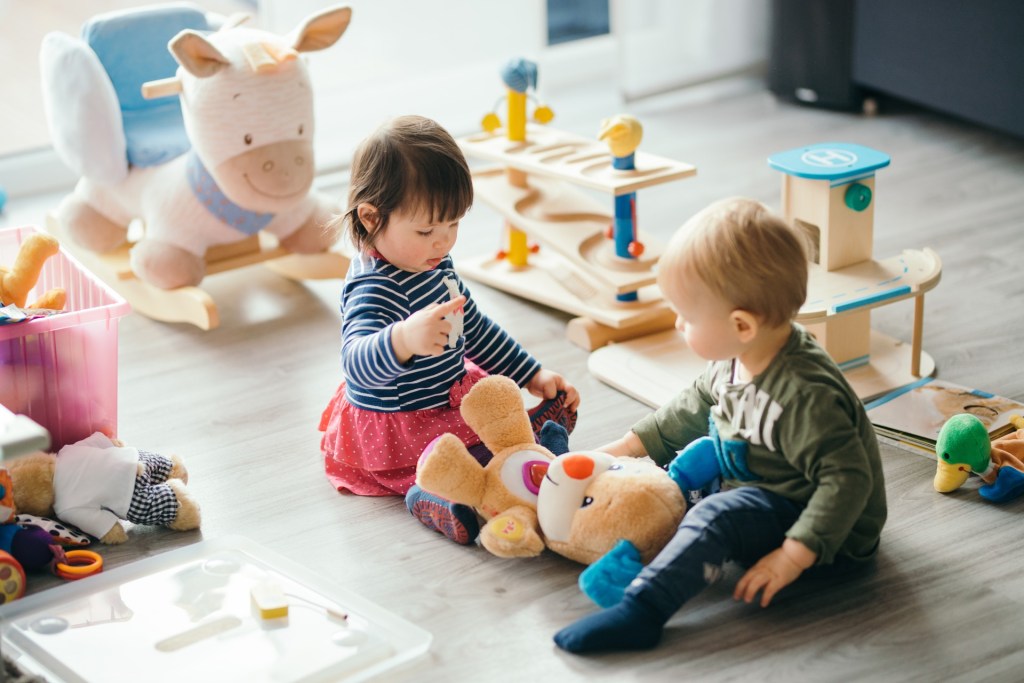
Tactics to stop toddlers from hitting changes as they grow
The toddler stage is typically defined as 1 to 3 years old. Any parent knows a child develops leaps and bounds in that time, so you may change your approach slightly as a child gets older and understands more. McKitrick suggests giving them the words to say in certain situations between 12 and 24 months. Think, “Stop,” “No,” and, “That hurts.”
Around the child’s second birthday, you may be able to use the moment a toddler hits to teach empathy and responsibility. “In that second and third year, it’s really a good idea to point out to the child who hit the reaction of the person they did hit, and point out the fact that they are crying or that hurt them,” McKitrick said. “Help them figure out a way to make amends for what they’ve done.”
For years, that’s often meant making a kid say they are sorry, but McKitrick feels actions speak louder than words. “[Try having them] go to get an ice pack out or give that child a toy or something to help them feel better,” she said. It’s essential to carefully walk the line between teaching a child right from wrong and shaming them.
How you respond as a parent matters so much
Your tot is going to look to you as the parent to see how you react to their behavior. “It is so much up to the parent or the adult to respond without anger, without judgment, or without shaming, to not use words like, ‘That’s a bad boy. No one will like you if you hit,’” McKitrick noted. “That’s shaming, and we don’t want to do that.”
Instead, McKitrick said to respond with a pleasant face and firm words, “but always with an attitude of accepting and understanding. We all get angry and don’t like it when people grab us,” she said. “It’s just a matter of putting yourself in this kid’s place and saying, ‘Hey, I know you can’t say anything, but let me help you figure out how to communicate without hurting other people.’”
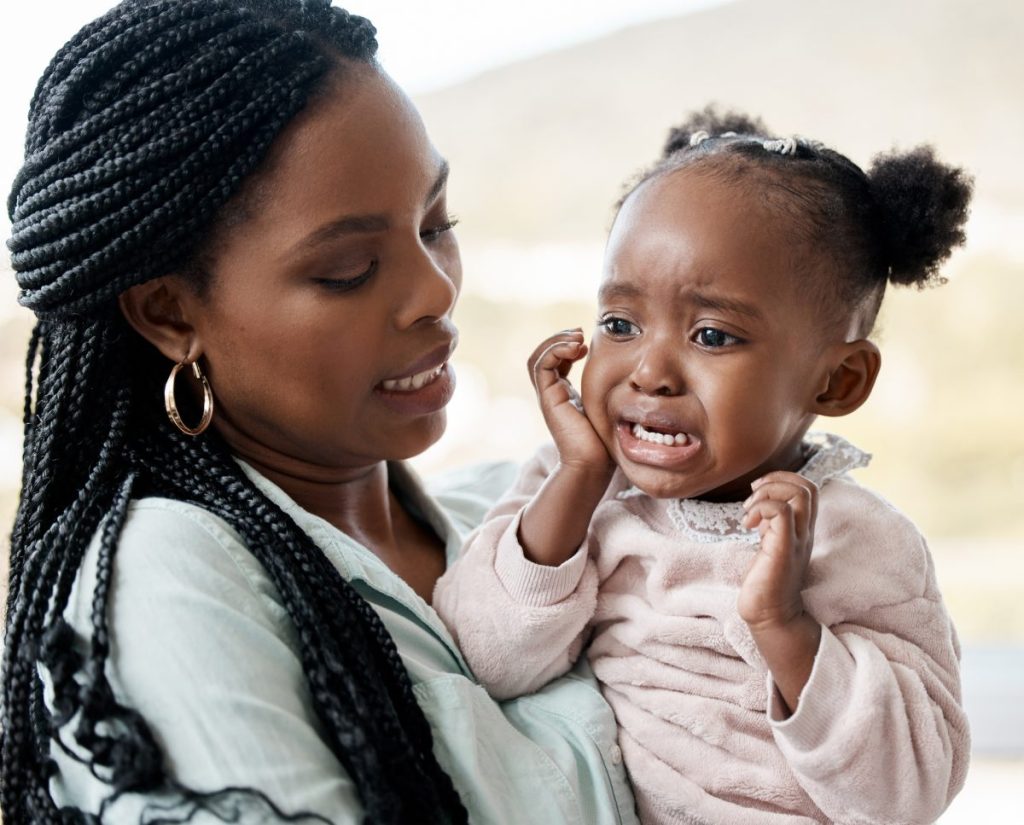
When there might be a cause for concern
Most toddlers are going to go through the hitting phase, and that will be completely normal. But there are signs to watch out for that would require you to take things a little more seriously or even consult the pediatrician.
Be aware of these changes in your child
- Starts attacking others
- Hurts themself
- There’s been a life change and the aggression comes on suddenly
- Only wants to play with violent toys or violent games
- The behavior continues consistently for weeks
Being a kid is hard, and your toddler has it even worse since they may not know how to talk yet and are going through a growth spurt during this time in their life. But if there are drastic changes in your child’s behavior or temperament, talk to a professional about what could be going on with your tot. Phases pass, but you want to make sure your child is being supported if they are going through a hard time.

What not to do when toddlers hit
- Don’t yell at your child.
- Don’t hit your child or smack their hand in retaliation.
- Don’t ignore the hitting or ignore your child because they hit.
McKitrick said there are three big don’ts when toddlers hit: Hitting back, yelling, and withholding attention as punishment. “When you hit back, you are saying is that hitting is what you can do if you are bigger,” McKitrick noted. “Yelling at them is frightening. Withholding attention as punishment is emotionally abusive.”
When a toddler hits at daycare or for seemingly no reason, it is stressful for parents, but it’s important to put yourself in the child’s shoes. If sending your child to day care, learn your provider’s hitting policy before sending your child and make sure you are comfortable with it. They are likely hitting to communicate or because it’s a behavior they learned somewhere, such as in the home or at day care.
It’s important not to yell at or shame the child, but to help them learn better ways ito communicate. As the toddler grows, teach them how to make amends for hitting, such as getting the other child an ice pack. Parents, take a deep breath, and know that it should be a temporary phase your kiddo will grow out of once they hit around three years old. You survived not sleeping with a newborn in the house and you will get through your toddler hitting others stage.

